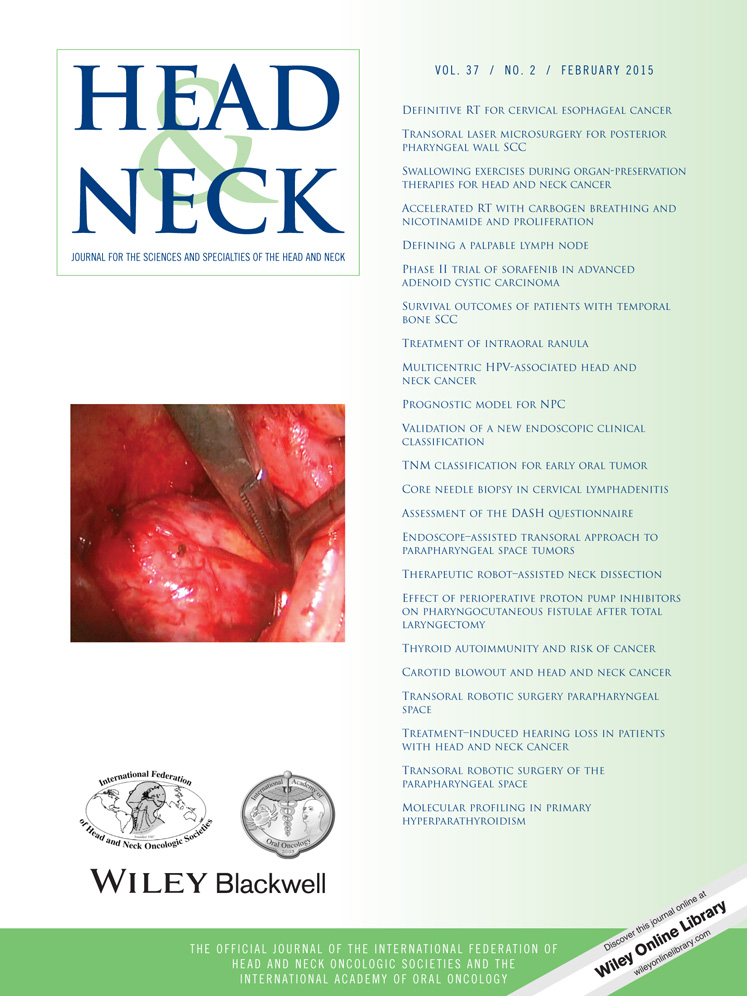Definitive radiotherapy for cervical esophageal cancer
Abstract
Background
The role of contemporary radiotherapy (RT) has not yet been elucidated, mainly because of the low incidence of cervical esophageal cancer. The purpose of this study was to analyze the outcome in patients with cervical esophageal cancer treated with definitive RT.
Methods
A total of 115 patients with cervical esophageal cancer treated with definitive RT during January 2001 through April 2012 in our center were analyzed. Eighty patients received RT alone and 35 patients received concurrent chemoradiotherapy with cisplatin administered either weekly (30 mg/m2) or every 3 weeks (80 mg/m2).
Results
The median follow-up time was 17.1 months. For all patients, the overall 2-year local failure-free survival (LFFS), regional failure-free survival (RFFS), distant failure-free survival (DFFS), and overall survival (OS) rate was 68.3%, 83.3%, 75.7%, and 47.6%, respectively.
Conclusion
Definitive RT accomplished a satisfactory local control rate and contributed to organ preservation for patients with cervical esophageal cancer. © 2014 Wiley Periodicals, Inc. Head Neck 37: 151-155, 2015




